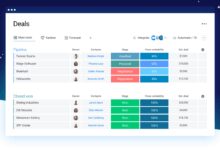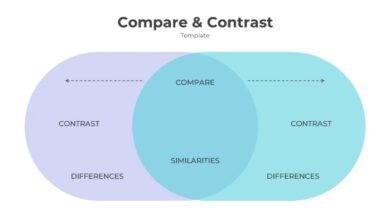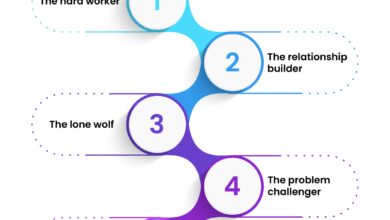Sales CRM Software for Small Business: 7 Powerful Tools to Skyrocket Growth
Running a small business? Then you know how tough it is to keep track of every lead, follow-up, and customer detail. That’s where Sales CRM software for small business comes in—your secret weapon to stay organized, close more deals, and grow smarter.
Why Sales CRM Software for Small Business is a Game-Changer

Small businesses operate in a fast-paced, competitive environment. Every interaction counts, and missing a follow-up can mean losing a customer. Sales CRM software for small business isn’t just a luxury—it’s a necessity for sustainable growth.
Streamlining Sales Processes
One of the biggest advantages of using CRM software is the ability to streamline your entire sales process. From lead capture to deal closure, a CRM centralizes all data in one place. No more scattered spreadsheets or lost emails.
- Automates repetitive tasks like data entry and follow-up reminders
- Provides a clear sales pipeline view for better forecasting
- Enables seamless handoffs between sales and support teams
According to Salesforce, companies using CRM see a 41% increase in sales productivity. For small businesses with limited resources, this efficiency boost is invaluable.
Improving Customer Relationships
A CRM doesn’t just help you sell—it helps you build relationships. By storing customer interactions, purchase history, and preferences, you can personalize your approach and deliver better service.
- Track all customer communications (calls, emails, meetings)
- Send personalized messages based on behavior and history
- Identify upsell and cross-sell opportunities
“A CRM turns random interactions into meaningful relationships.” — HubSpot
This level of personalization builds trust and loyalty, which are critical for small businesses trying to stand out in crowded markets.
Top 7 Sales CRM Software for Small Business in 2024
Choosing the right CRM can be overwhelming. To help you decide, we’ve compiled a list of the 7 most powerful Sales CRM software for small business that offer affordability, ease of use, and scalability.
1. HubSpot CRM
HubSpot CRM is one of the most popular free CRM platforms for small businesses. It offers a clean interface, powerful automation, and seamless integration with marketing and service tools.
- Fully free core CRM features (contact management, deal tracking, email integration)
- Intuitive dashboard with drag-and-drop pipeline management
- Powerful email tracking and scheduling tools
HubSpot also offers paid tiers for advanced features like automation workflows and reporting. Its free plan makes it an ideal starting point for startups. Learn more at HubSpot’s official site.
Sales CRM software for small business – Sales CRM software for small business menjadi aspek penting yang dibahas di sini.
2. Zoho CRM
Zoho CRM is a feature-rich platform designed specifically for small to mid-sized businesses. It combines affordability with enterprise-level capabilities.
- AI-powered sales assistant (Zia) for predictive insights
- Customizable workflows and approval processes
- Strong mobile app for on-the-go access
Zoho integrates with over 40 other Zoho apps and third-party tools like G Suite and QuickBooks. Its pricing starts at just $14/user/month, making it one of the most cost-effective Sales CRM software for small business. Visit Zoho CRM for a free trial.
3. Salesforce Essentials
Salesforce, the global CRM leader, offers a simplified version called Essentials tailored for small businesses with up to 10 users.
- Full Salesforce functionality in a simplified interface
- Pre-built templates for common sales processes
- Real-time collaboration tools
Salesforce Essentials starts at $25/user/month and includes email integration, lead scoring, and mobile access. It’s perfect for small teams ready to scale. Explore it at Salesforce Essentials.
4. Freshsales (by Freshworks)
Freshsales stands out for its AI-driven insights and user-friendly design. It’s built for sales teams that want smart automation without complexity.
- AI-based lead scoring to prioritize high-value prospects
- Visual deal pipeline with drag-and-drop functionality
- Built-in phone and email for seamless outreach
Pricing starts at $15/user/month, and the platform includes gamification features to boost team motivation. Freshsales is a top contender among Sales CRM software for small business focused on performance. Learn more at Freshworks CRM.
5. Pipedrive
Pipedrive is designed by salespeople, for salespeople. Its visual sales pipeline makes it easy to track deals and manage follow-ups.
- Simple, intuitive interface focused on deal progression
- Powerful automation for repetitive tasks
- Robust reporting and forecasting tools
Pipedrive’s strength lies in its simplicity and effectiveness. It’s ideal for small sales teams that want to focus on closing deals without getting bogged down by complexity. Plans start at $14.90/user/month. Check it out at Pipedrive.
6. Insightly
Insightly combines CRM with project management, making it perfect for small businesses that handle both sales and client projects.
Sales CRM software for small business – Sales CRM software for small business menjadi aspek penting yang dibahas di sini.
- Project and task tracking within the CRM
- Relationship linking to map customer networks
- Workflow automation for lead nurturing
It’s especially useful for service-based businesses like agencies or consultants. Pricing starts at $29/user/month. Visit Insightly to explore its capabilities.
7. Agile CRM
Agile CRM offers an all-in-one solution combining sales, marketing, and service features at an affordable price.
- Free plan available for up to 10 users
- Marketing automation with email campaigns and landing pages
- Telephony integration and web tracking
While the free version has limitations, it’s a great way to test the platform. Paid plans start at $9.99/user/month. Agile CRM is a solid choice for small businesses wanting maximum features on a budget. Learn more at Agile CRM.
Key Features to Look for in Sales CRM Software for Small Business
Not all CRMs are created equal. When evaluating options, focus on features that align with your business goals and team size. Here are the must-have capabilities.
Contact and Lead Management
The foundation of any CRM is its ability to store and organize customer data. Look for a system that allows you to:
- Import contacts from email, spreadsheets, or social media
- Tag and segment leads based on behavior or demographics
- Duplicate detection to avoid data clutter
A robust contact database ensures no lead falls through the cracks.
Sales Pipeline Tracking
A visual sales pipeline helps you understand where each deal stands. Key features include:
- Customizable stages (e.g., Prospecting, Qualification, Proposal, Closed-Won)
- Drag-and-drop functionality to move deals
- Real-time updates across team members
This transparency improves accountability and forecasting accuracy.
Automation and Workflow Tools
Small teams can’t afford to waste time on manual tasks. Automation saves hours every week by:
Sales CRM software for small business – Sales CRM software for small business menjadi aspek penting yang dibahas di sini.
- Scheduling follow-up emails and tasks
- Assigning leads based on rules (e.g., geography, product interest)
- Sending notifications for overdue activities
According to Nucleus Research, CRM automation delivers an average $8.71 return for every dollar spent.
How to Choose the Right Sales CRM Software for Small Business
Selecting the right CRM isn’t just about features—it’s about fit. Follow these steps to make a smart decision.
Assess Your Business Needs
Start by asking: What are your biggest sales challenges? Do you need better lead tracking? More automation? Improved team collaboration? Define your goals before comparing tools.
- List your must-have features
- Identify integration needs (e.g., email, calendar, accounting software)
- Consider future growth and scalability
For example, a consulting firm might prioritize project tracking, while an e-commerce brand may need marketing automation.
Test with a Free Trial
Most CRM platforms offer free trials or freemium plans. Use this time to:
- Import real data to test performance
- Train your team and gather feedback
- Check mobile app usability and offline access
Hands-on experience is the best way to evaluate usability and fit.
Check Integration and Support
A CRM should work with your existing tools, not against them. Look for:
- Native integrations with Gmail, Outlook, Slack, or Zoom
- API access for custom connections
- Quality customer support (live chat, phone, knowledge base)
Poor integration can lead to data silos and frustration. Ensure the CRM connects seamlessly with your tech stack.
Common Mistakes to Avoid When Implementing CRM
Even the best Sales CRM software for small business can fail if implemented poorly. Avoid these common pitfalls.
Sales CRM software for small business – Sales CRM software for small business menjadi aspek penting yang dibahas di sini.
Skipping Team Training
Employees won’t use a CRM if they don’t understand it. Invest time in onboarding and ongoing training.
- Provide step-by-step guides and video tutorials
- Assign a CRM champion within the team
- Run regular check-ins to address issues
According to CIO.com, lack of user adoption is the #1 reason CRM projects fail.
Over-Customizing Too Early
While customization is powerful, doing it too soon can complicate the system. Start with default settings and refine as you learn.
- Use pre-built templates and workflows initially
- Customize only after identifying consistent pain points
- Avoid adding unnecessary fields or stages
Keep it simple to ensure quick adoption and usability.
Ignoring Data Quality
A CRM is only as good as the data it contains. Poor data leads to missed opportunities and bad decisions.
- Set data entry standards (e.g., required fields, naming conventions)
- Regularly clean and deduplicate records
- Use validation rules to prevent errors
“Garbage in, garbage out.” — Data Management Principle
Dedicate time each month to audit and improve your CRM data.
How CRM Boosts Sales Team Productivity
Sales CRM software for small business isn’t just about storing data—it’s about empowering your team to sell smarter and faster.
Reducing Administrative Burden
Sales reps spend up to 64% of their time on non-selling tasks, according to Cornerstone OnDemand. A CRM automates many of these tasks:
- Auto-logging calls and emails
- Generating quotes and proposals
- Scheduling meetings with calendar sync
This frees up time for actual selling and relationship-building.
Sales CRM software for small business – Sales CRM software for small business menjadi aspek penting yang dibahas di sini.
Enhancing Collaboration
CRMs break down silos between team members. Everyone has access to the same information, reducing miscommunication.
- Team members can comment on deals and assign tasks
- Managers can monitor progress and coach in real time
- New hires get up to speed faster with full deal history
This transparency fosters accountability and teamwork.
Providing Actionable Insights
Modern CRMs offer real-time analytics that help you make data-driven decisions.
- Track conversion rates by stage
- Identify bottlenecks in the sales process
- Forecast revenue with greater accuracy
These insights allow small businesses to compete with larger players by being more agile and informed.
Future Trends in Sales CRM for Small Businesses
The CRM landscape is evolving fast. Small businesses that stay ahead of trends will gain a competitive edge.
AI and Predictive Analytics
Artificial intelligence is no longer just for enterprises. Tools like Zia in Zoho CRM and Einstein in Salesforce offer predictive lead scoring, email suggestions, and next-best-action recommendations.
- AI identifies high-intent leads automatically
- Recommends optimal times to follow up
- Generates personalized email drafts
These features help small teams work smarter with limited resources.
Mobile-First CRM Design
With more sales happening remotely, mobile CRM access is essential. Future CRMs will prioritize:
- Offline mode for data entry without internet
- Voice-to-text for quick note-taking
- Push notifications for urgent tasks
Mobile functionality ensures your team stays connected, whether they’re in the office or on the road.
Sales CRM software for small business – Sales CRM software for small business menjadi aspek penting yang dibahas di sini.
Integration with Communication Platforms
CRMs are increasingly integrating with tools like Slack, Microsoft Teams, and WhatsApp.
- Receive deal updates directly in chat
- Log conversations from messaging apps into the CRM
- Initiate calls or emails without leaving the platform
This seamless experience reduces context switching and improves efficiency.
What is the best Sales CRM software for small business?
The best CRM depends on your specific needs. HubSpot CRM is ideal for startups due to its free plan and ease of use. Zoho CRM offers great value with advanced features at a low cost. Pipedrive excels in visual pipeline management, while Salesforce Essentials provides enterprise-grade tools for growing teams.
Is CRM software worth it for small businesses?
Absolutely. CRM software helps small businesses organize leads, improve customer relationships, and increase sales efficiency. Studies show CRM users see up to a 30% increase in sales. For small teams, this can mean the difference between stagnation and growth.
Can I use CRM software on my phone?
Yes, most modern CRM platforms offer mobile apps for iOS and Android. These apps allow you to view contacts, update deals, log calls, and receive notifications on the go, ensuring you never miss a critical update.
How much does CRM software cost for small businesses?
Sales CRM software for small business – Sales CRM software for small business menjadi aspek penting yang dibahas di sini.
Prices vary, but most small business CRMs start between $10–$30 per user per month. Some, like HubSpot and Agile CRM, offer free plans with basic features. Always consider the long-term value, not just the price tag.
Do I need technical skills to use CRM software?
No. Most Sales CRM software for small business is designed to be user-friendly, with drag-and-drop interfaces and guided setup. Many providers also offer onboarding support and tutorials to help you get started quickly.
Choosing the right Sales CRM software for small business can transform how you manage customers and grow your revenue. From HubSpot’s free tools to Salesforce’s robust platform, there’s a solution for every budget and need. Focus on ease of use, essential features, and scalability. Avoid common mistakes like poor training and data neglect. With the right CRM, your small business can operate like a well-oiled machine—closing more deals, building stronger relationships, and achieving sustainable growth.
Further Reading:







